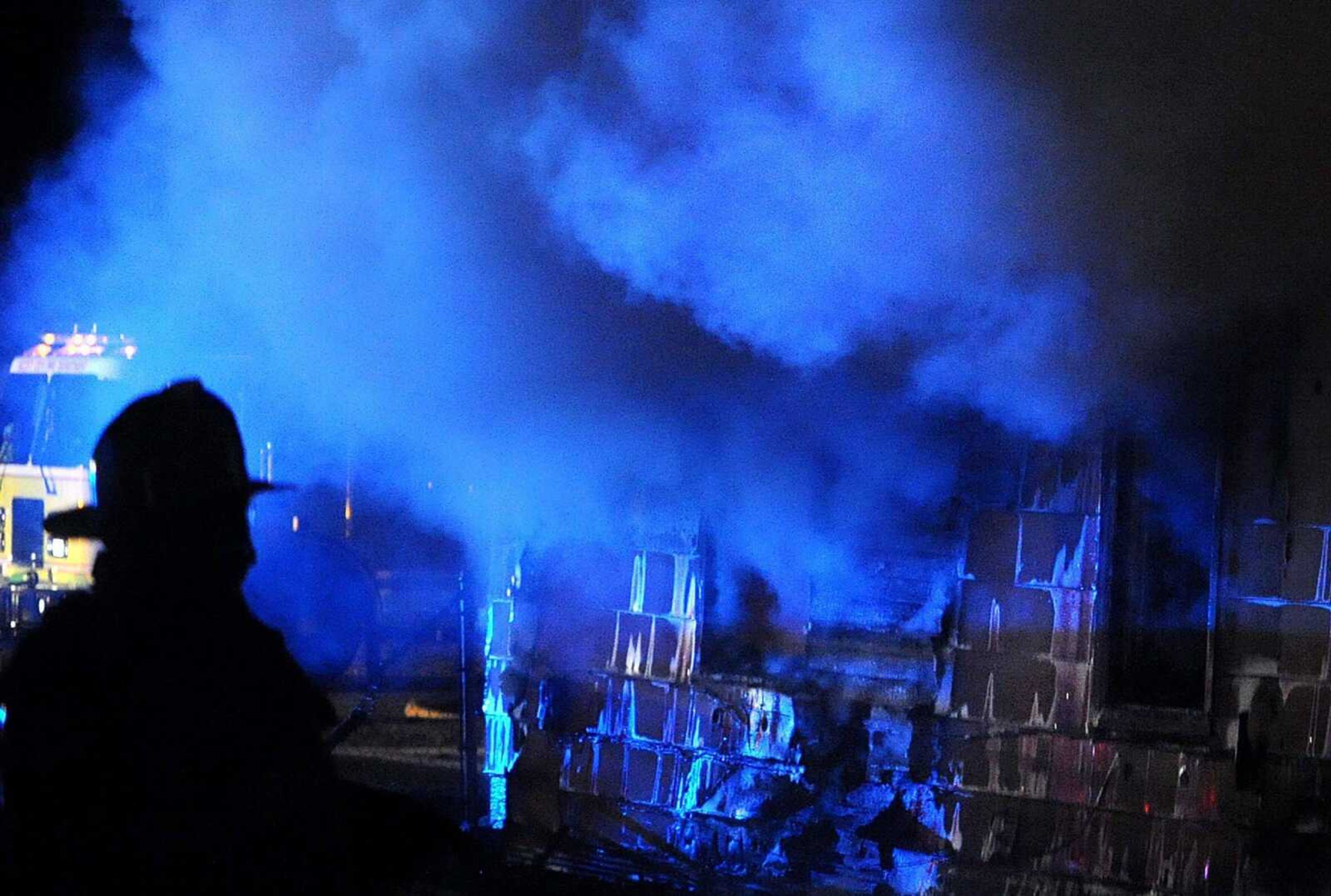Firefighters offer cold-weather safety tips
As evenings start to cool down and residents begin switching on furnaces and space heaters for the first time in months, firefighters have a few recommendations to keep living spaces safe and warm. Brad Dillow, battalion chief for the Cape Girardeau Fire Department, advised homeowners to have a professional inspect heating systems to ensure they are in good working order...
As evenings start to cool down and residents begin switching on furnaces and space heaters for the first time in months, firefighters have a few recommendations to keep living spaces safe and warm.
Brad Dillow, battalion chief for the Cape Girardeau Fire Department, advised homeowners to have a professional inspect heating systems to ensure they are in good working order.
"If people are using fireplaces ... make sure that they're cleaned out, the chimney's cleaned from the last year," he said.
Dillow also advised residents with fireplaces to make sure they know which type they have. Some fireplaces are designed to burn wood, while others are designed specifically for gas, he said.
Fireplaces designed for wood vent to the outside and should have a lever that allows the user to open and close vents, Dillow said.
Individuals who are unsure of which type they have should call a heating and air-conditioning professional the check out the system and explain how to use it safely, he said.
Space heaters also pose risks, Dillow said.
In addition to making sure space heaters are kept at least three to four feet from flammable objects, he cautioned against overloading electrical circuits.
"Space heaters can pull quite a bit of amperage," he said.
Yearly inspections and maintenance are important for wood and gas heating systems, Dillow said.
Parts can wear out, and over the summer, vents can become obstructed, he said.
"Birds and critters can get up into those vents and make a nest, and then we have carbon monoxide backing up into the house," Dillow said.
He recommends scheduling an inspection now, before the weather gets cold and professionals get booked up.
"It's best not to wait until the last minute," he said.
Homes also need working smoke alarms and carbon monoxide detectors, Dillow said.
He recommends a carbon monoxide detector with a digital display that shows how much of the gas is in the air.
Detectors typically activate when the concentration reaches 32 to 35 parts per million -- not enough to cause immediate health problems, Dillow said, but enough to warrant having someone inspect the system and make necessary repairs before the concentration reaches dangerous levels.
Cape Girardeau fire marshal Brian Shaffer recommends testing smoke alarms monthly and replacing batteries in smoke and carbon monoxide detectors at the beginning and end of daylight saving time.
Homes should have at least one smoke detector on each floor, he said, and ideally, each bedroom should have one as well.
Shaffer advises mounting smoke detectors in hallways outside bedrooms.
Wall-mounted smoke detectors should be six inches below the ceiling, and ceiling-mounted smoke detectors should be four to six inches from the nearest wall, he said.
Smoke detectors last about 10 years and can be purchased for $5 or less, Shaffer said.
"[There's] really no reason not to have one," he said.
epriddy@semissourian.com
388-3642
Connect with the Southeast Missourian Newsroom:
For corrections to this story or other insights for the editor, click here. To submit a letter to the editor, click here. To learn about the Southeast Missourian’s AI Policy, click here.









